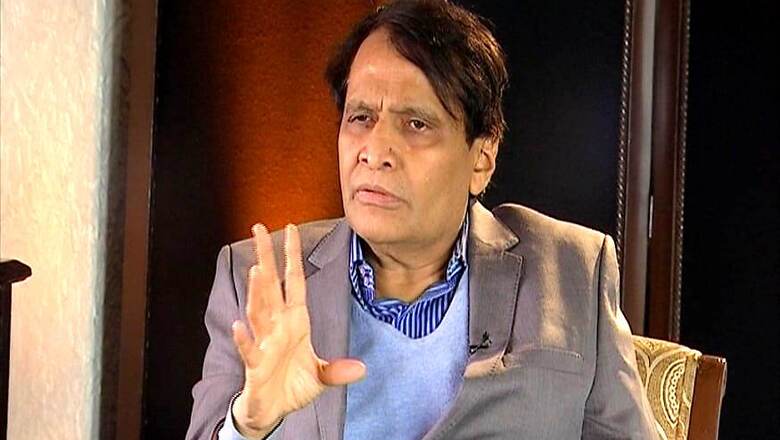
views
New Delhi: With job creation emerging as the key challenge before Narendra Modi-led government, Commerce Minister Suresh Prabhu is working overtime to find ways to boost employment intensive sectors even as the economy shifts to automation and robotics.
“We are identifying the key areas by working with top class experts. We are working with industry players to find out which are those sectors. Service sector is creating huge jobs now but we don't have the methodology to capture that new economic activity. That is something that we must develop. Similarly, we are also targeting tourism industry," said Prabhu.
The first four months of 2017 resulted in 1.5 million job losses in India, according to a report by Centre for Monitoring Indian Economy (CMIE). According to another report by CIEL HR Services, a recruitment consultant, the telecom industry lost 40,000 jobs in 2017.
The commerce minister however, negated all such claims. “Jobs being created in India are phenomenal. When I was the railway minister, I commissioned a study to actually find out how many jobs we had created. We have phenomenally created jobs," stated Prabhu.
The commerce minister is also banking on high investments to create more jobs.
“There is a direct correlation between investments and job creation. There's a correlation between economic activity and job creation. If you see railway investments in the last three years, it was almost Rs 3 lakh 75 thousand crore as opposed to Rs 4 lakh crore that was invested in railways cumulatively in the past 70 years," informed Prabhu.
The Centre, along with private players, has also been expediting policies to bring in automation and newer technologies such as artificial intelligence.
Prabhu said,“There is displacement of jobs due to technological development but there will be creation of jobs which will outrun the number of jobs lost. There will not only be losers but gainers also. We are identifying six such sectors which will have the propensity to generate more jobs."
Ministry of commerce is also planning to come up with a new industrial policy. The last industry policy was drafted in 1992.


















Comments
0 comment